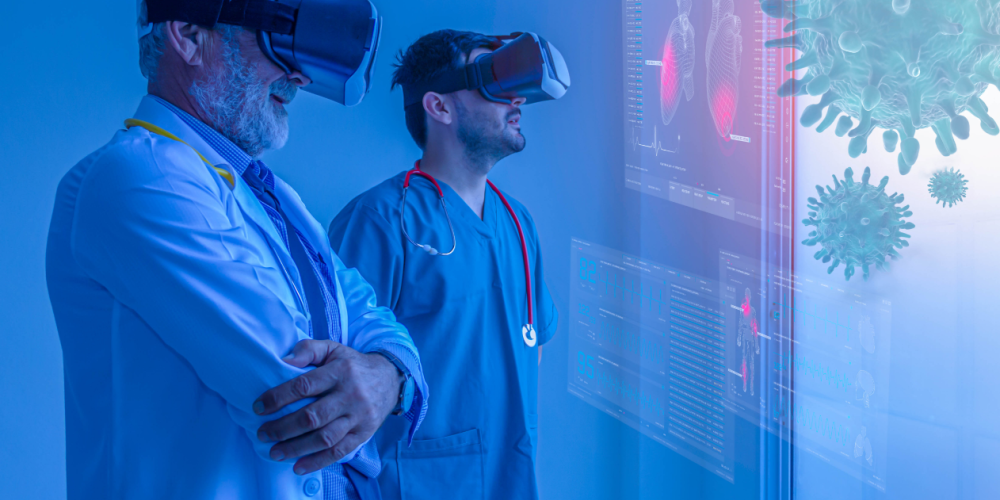
The COVID-19 pandemic reminds us that infectious diseases pose a significant threat to public health and the global economy. Confronted with a high degree of uncertainty about the spread of SARS-CoV-2, designing policies to mitigate the epidemic represents an enormous challenge for policy makers and governments.
Artificial Intelligence (AI) can support decision makers in managing the COVID-19 crisis across multiple dimensions. For example, machine learning techniques, combined with statistics, could finetune the epidemiological models that estimate how fast the epidemic will spread over time, or predict the number of intensive care units that will be needed in the hospitals. This could allow health care facilities to make the necessary adjustments ahead of time. Pattern mining techniques could extract active compounds from bioinformatics databases to help with the design of a new drug for the virus.
The above methods give us valuable insights in how the epidemic is spreading. However, the question remains how to take the right actions to effectively handle an ongoing epidemic. Which are the optimal prevention strategies for infectious diseases, and how can computers automatically discover them using artificial intelligence? This is exactly the question that Pieter Libin of the Artificial Intelligence Lab (VUB) has addressed in his PhD research.
His approach builds on an AI technique called Reinforcement Learning, that became famous when Google Deepmind’s AlphaGo programme defeated the world champion of Go in 2017. Reinforcement learning is a subfield within machine learning that learns to take the optimal decisions that lead to a desired outcome. It does so by interacting with an environment and propose strategies to reach well-specified goals in that environment.
In his research, Pieter investigated a reinforcement learning approach to automatically learn optimal prevention strategies for mitigating epidemics. This new methodology is evaluated in the context of pandemic influenza and presents a framework to study prevention strategies for other pathogens such as SARS-CoV-2.
Policy makers have many different options when it comes to prevention strategies, such as stricter guidelines on the use of protective material, the wide-scale administration of vaccines (if available), contact tracing in combination with quarantine, closures of schools and other public venues, mobility restrictions, or a combination of the above. As there is no perfect solution, strategies may differ depending on the geographical region or the ‘state’ of the epidemic. Moreover, strategies must be dynamic: as the situation evolves, they are to be continuously revised. This is where AI can help: given epidemiological models, AI techniques can assist humans in taking good decisions.
The work shows that AI research presents promising opportunities to support policy makers in their decision-making, and that it can have a huge impact on the outcome of health crises as the present one. For example, it is well-known that the success of prevention strategies is largely dependent on behavioral, cultural, and societal factors. The framework can combine epidemiological models with complex decision-making models that take these human factors into account, borrowing well-studied techniques from the domains of social dynamics and game theory. While we encourage more research in this area, we strongly advocate that AI innovation respects our democratic values, taking into account ethical considerations and the privacy of our citizens.
We are confident that AI can be an important ally in our battle against COVID-19. There are multiple AI initiatives ongoing or taking shape, both at university level and internationally. In collaboration with the medical experts at Brussels University hospital (UZB), the lab has set up two AI-driven projects on lung CT image analysis (one together with KU Leuven, the other with EZ Tilburg). Another AI-driven project is developing an integrated cockpit (able to perform data analysis and prediction) for the ICU department. Our researchers are also involved in the EU-wide COVID-19 Taskforce of CLAIRE (Confederation of Laboratories of Artificial Intelligence Research in Europe) to collect and offer cross-border AI expertise and initiatives (https://covid19.claire-ai.org/). Pieter Libin will now join the team of Prof. Niel Hens on a European grant to fight COVID-19, continuing the collaboration with Prof. Ann Nowé and Prof. Philippe Lemey.
This research was carried out by Pieter Libin and supervised by Prof. Ann Nowé of the VUB Artificial Intelligence Lab (https://ai.vub.ac.be) and Prof. Phillippe Lemey (Rega Institute, KU Leuven) in collaboration with Prof. Niel Hens (UHasselt and UAntwerpen). It was supported by FWO-Vlaanderen through a strategic basic research grant (FWO-SB) and by the Flemish Government under the “Onderzoeksprogramma Artificiële Intelligentie (AI) Vlaanderen“ program.